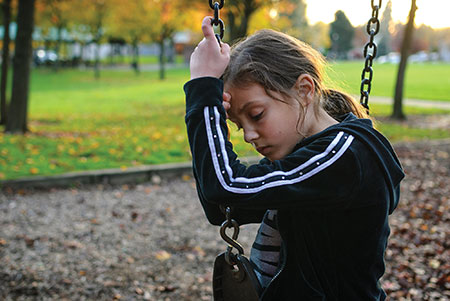By Eric T. Clark
 It is a staggering, record-high number in Kentucky: 10,000 kids in foster care.
It is a staggering, record-high number in Kentucky: 10,000 kids in foster care.
Here is another number: 800. That’s how many adults gathered in early January for the inaugural Transformers of Child Welfare Summit. These were social workers, judges, educators, government officials, faith-based community leaders, parents, relatives and others. They are all committed to improving our child welfare system and the lives of Kentucky children.
Summit participants heard from state and national experts, shared ideas, traded resources, and made plans to dig into the complex issues ingrained into our child welfare system, which includes foster care, adoption, relative caregiving, prevention services and many other support services.
We have initiated the process of working toward a holistic, collaborative approach to improving child welfare. The 800 participants at the summit represent just a portion of those dedicated to supporting families across our commonwealth.
One word best describes the scope of our challenges and opportunities: overwhelming.
It’s overwhelming to see the number of children in foster care and consider the complexities of all the lives affected. But it’s also overwhelming to see the committed stakeholders who have come alongside and invested in our transformation efforts. While the current system faces challenges that can seem overwhelming, the opportunities to make a positive difference are even greater.
This collective partnership is essential in making improvements. Anyone expecting the government to overhaul child welfare on its own is going to be disappointed. The success of our child welfare system belongs to all of us, and we all have valuable roles in supporting families and children within our communities.
Identifying your role in transforming a large, complex system such as child welfare can be intimidating. This led the Department for Community Based Services (DCBS) to simplify our strategies into three data-informed goals that build upon each other and will transform our system in a sustainable way:
• Safely reduce the number of children placed in a foster care setting.
• Improve timeliness of placing children in an appropriate permanent home.
• Reduce caseloads for our social workers.
Given the large number of children placed in foster care, our social workers are often overwhelmed with high caseloads. If we can safely reduce the number of children entering into foster care, social worker caseloads become more manageable. When front-line workers have manageable caseloads, there is capacity to reduce the amount of time a child is in foster care. It currently takes an average of 36 months for a child to be adopted in Kentucky. Three years of a child’s life without the certainty of a forever home is far too long.
Every child deserves a safe and loving forever home. To be clear, home is not a physical address but a state of acceptance, love and security that resides within the heart of a child. Permanency can mean reunifying the child back to their own home of origin – when it’s safe. It can also mean other stable placements like adoption.
I urge every Kentuckian to ask, how can I be a part of the solution? What are the needs of families and children within my community? Am I willing to lend a hand when a parent needs help? Am I interested in fostering or adopting a child?
We’re already seeing signs of encouragement: The number of children in care has started to decrease over the last three months, but it is still far too high. As we move forward, acknowledging significant milestones will help us to build upon our positive momentum.
Each one of us has a role in child welfare transformation. It’s going to take everyone – neighbors, lawmakers, school resource officers, judges, health professionals, parents, and, yes, you – to make the difference.
The challenge is before us – all of us – to make Kentucky the “gold standard” for child welfare nationally. We are committed to seizing this unprecedented opportunity to transform a system that will better the lives of children and families. This is not one agency changing one thing. It is all of us being committed to changing the future of our state by changing the trajectory of our next generation.
It is overwhelming, but nothing life changing is anything less.
It’s time we embrace what overwhelms us to complete our most important mission: improving the lives of Kentucky’s families and vulnerable children.
To learn more about how you can get involved, go to: prdweb.chfs.ky.gov/kyfaces.
Eric T. Clark is Commissioner of the Kentucky Department for Community Based Services.




















This number does not reflect the thousands of children already being raised by relatives, primarily grandparents with very little help. Our family is able to financially support the raising of three children (grandchildren), but many are not. We are moving in the right direction but please include the many children being raised by relatives to get a broader scope of the problem. Most children are out of home because of parental addiction. There must be more attention paid to getting parents services early. It would be important to look at a statewide START (Sobriety Treatment and Recovery Team) program instead of only having this program in a limited number of counties. START should be in every county in Kentucky.